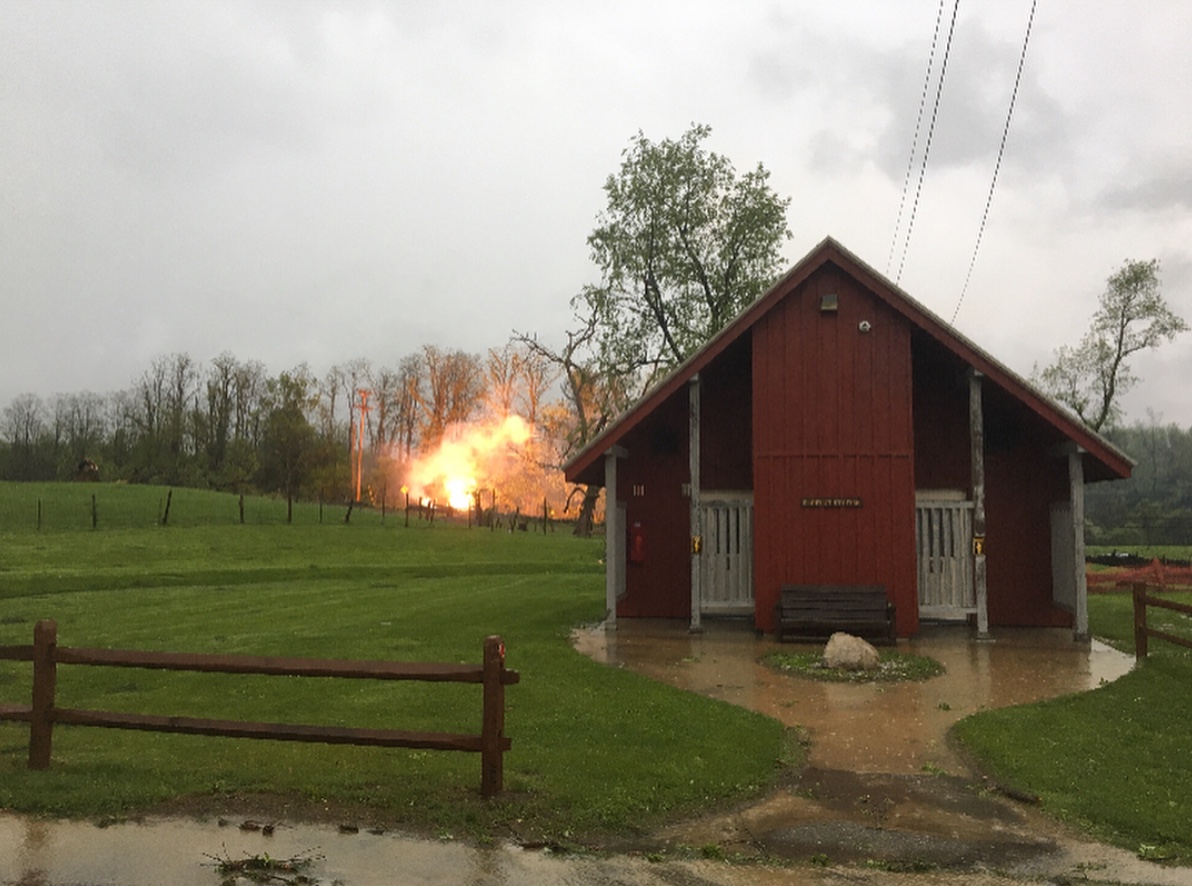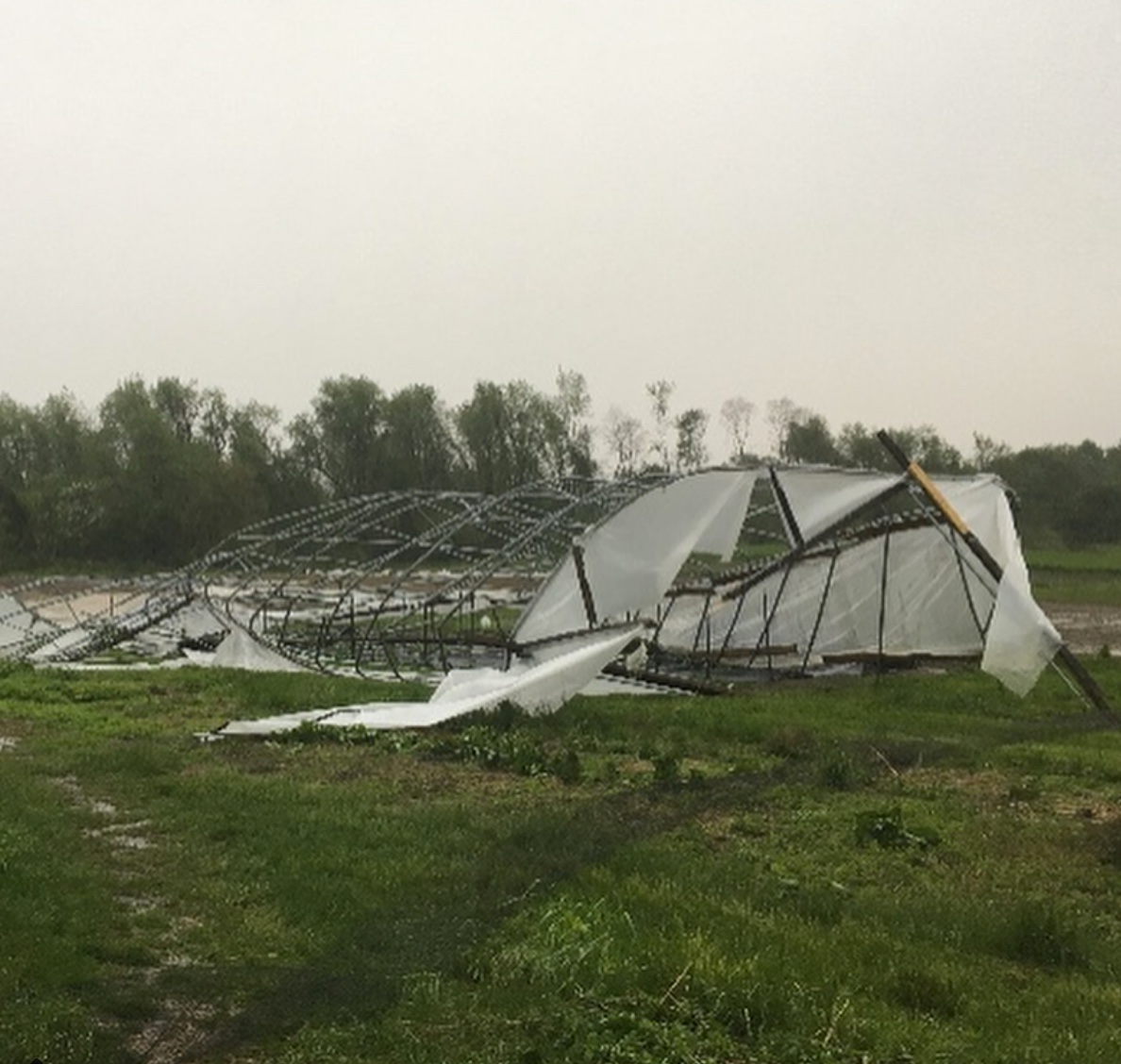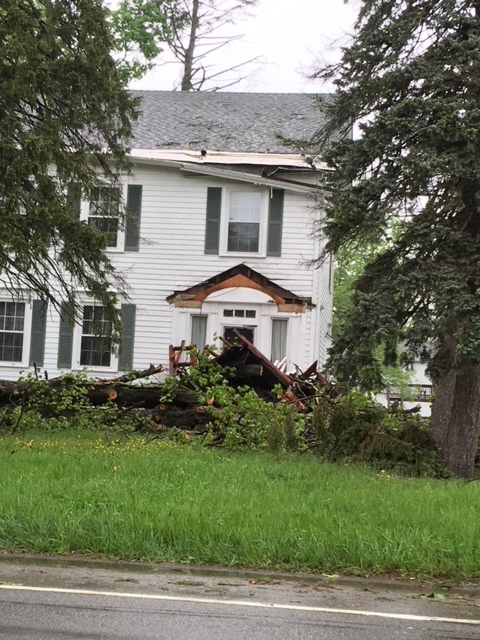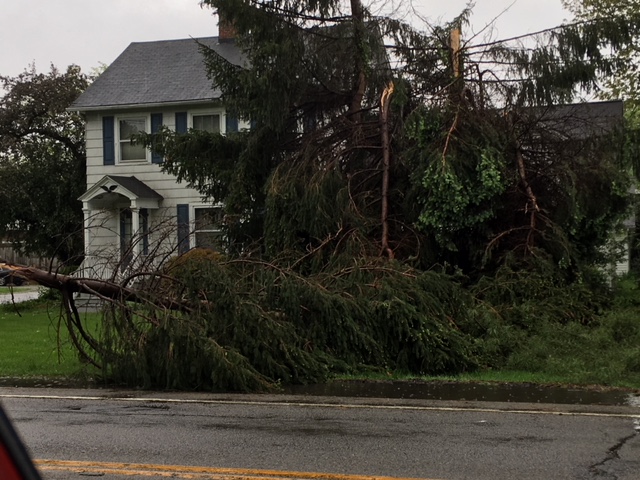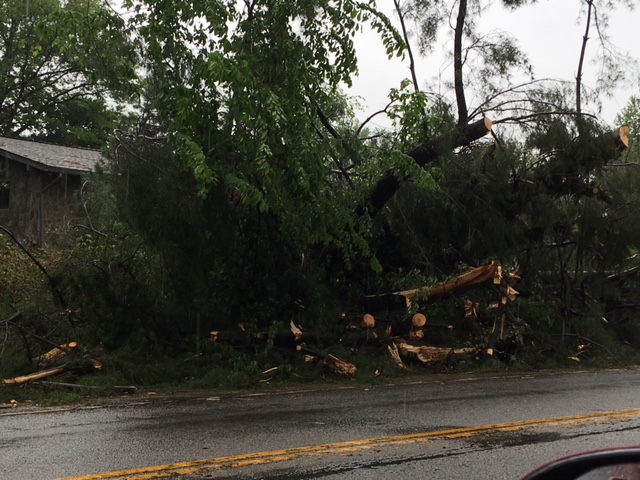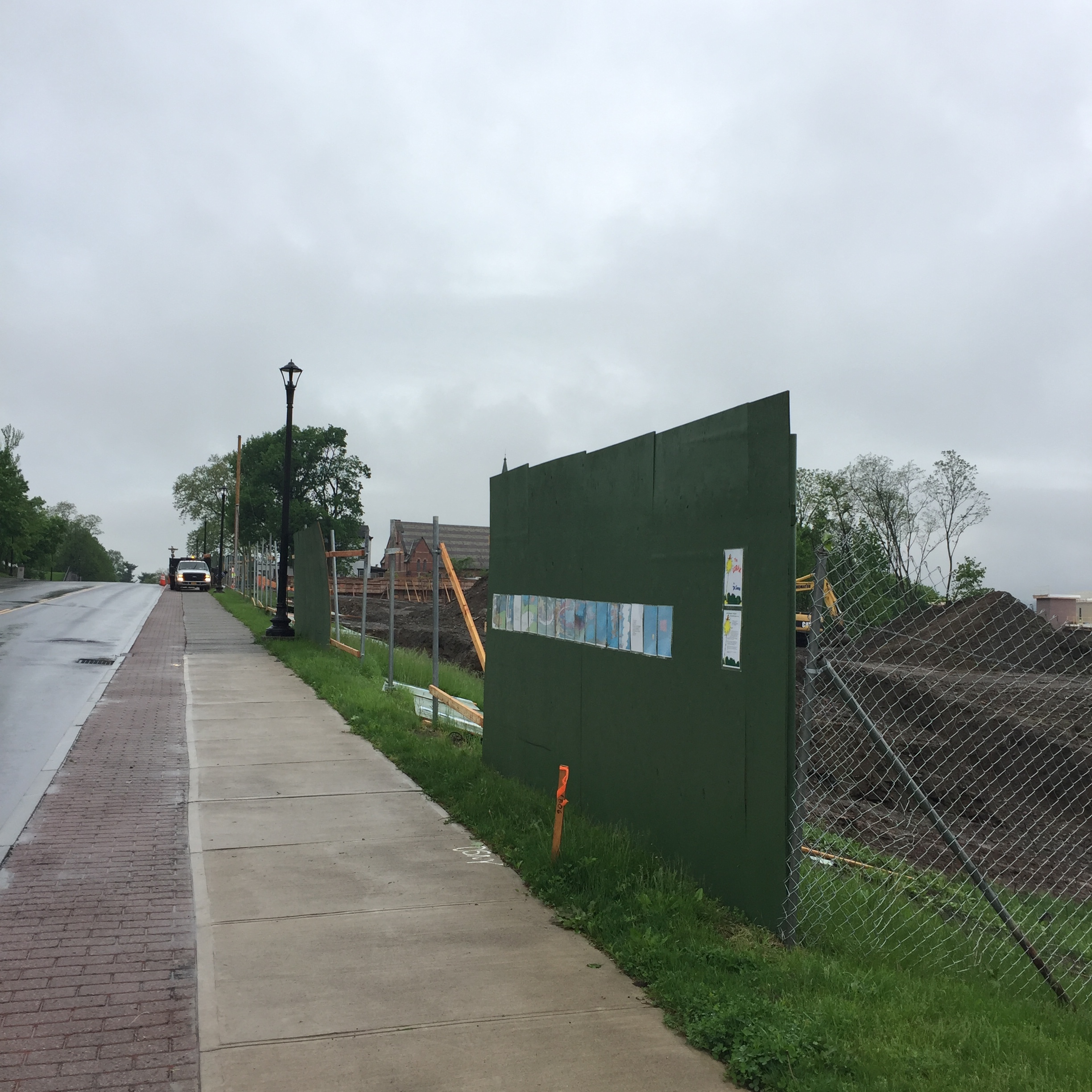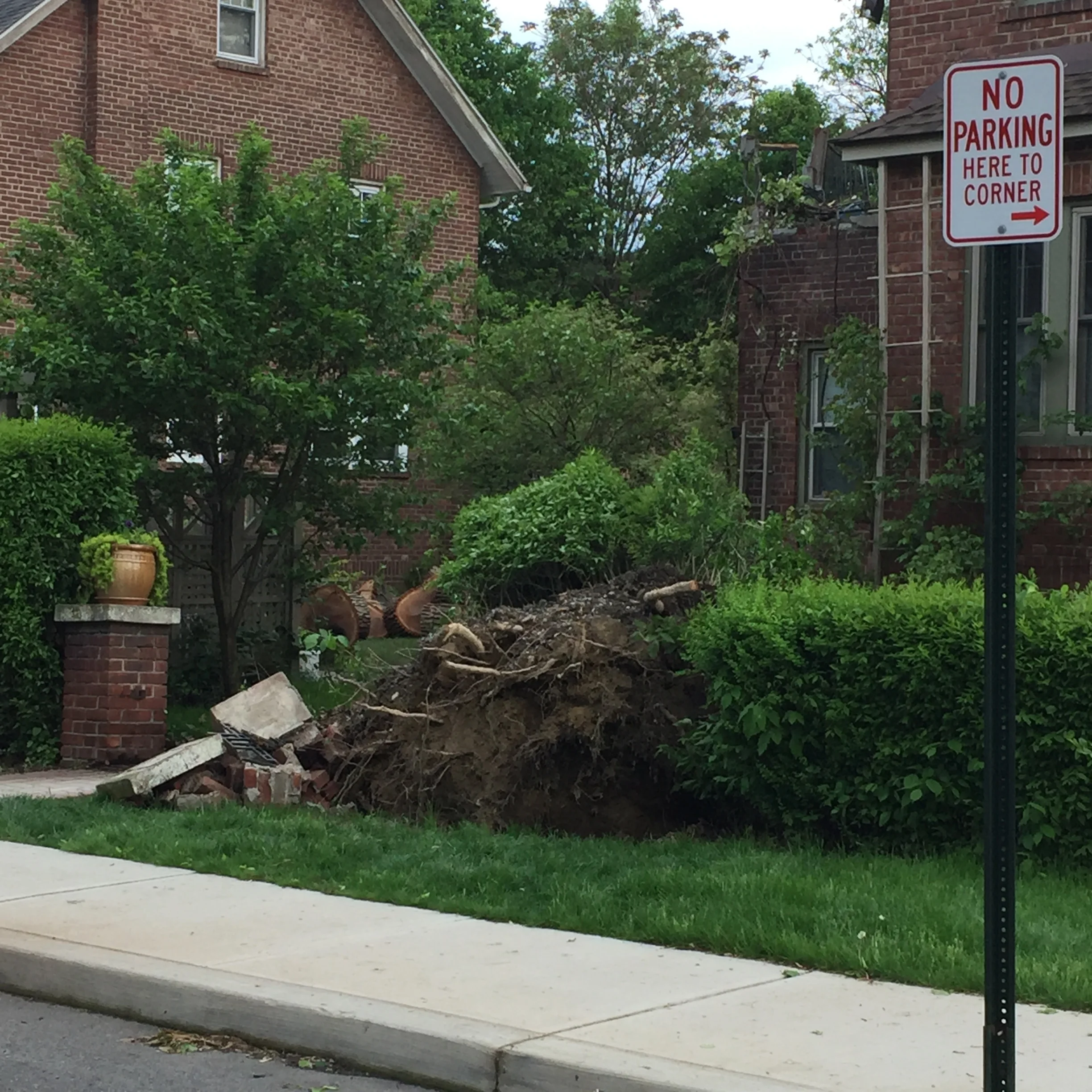Energy in our lives is simple - you flip on a light switch and the lights turn on.
Managing that energy and where it comes from is not as simple, especially as residents get marketed to on their front porches, and get letters in the mail from sources like:
Central Hudson, the company who makes sure our energy gets to our homes.
City of Beacon to tell residents about any changes.
Third-party energy agents who want customers to leave an energy supply arrangement with Central Hudson and hook up with their company, which could be a renewable energy company, or just an energy company promising discounts - in exchange for a contract with a length of time coupled with a fine if the customer decides to leave the billing arrangement early. Sometimes these companies come door to door, promising cash sign-on bonuses if you give them your bill right there on the spot.
Peddler’s Permit: Remember, when these people do come to your door, ask to see their Peddler’s Permit, as explained by Beacon’s former City Administrator Anthony Ruggiero to ALBB years ago.
Cautionary Note: Be very, very careful about showing your utility bills to anyone. You should protect your Central Hudson account number like you (should) protect you Social Security Number.
The Confusing Central Hudson Letter Of June 2021
In May 2021, residents of Beacon received a package from the City of Beacon explaining that the energy supplier of renewable energy (in this case, 100% hydropower) from the group purchasing partnership the city belongs to, Hudson Valley Community Power, was changing from Direct Energy to Columbia Utilities Power, LLC. No change would be needed by the resident customer, but as required by the program, a rectangular opt-out card with self-addressed envelope was included with the package for people who wanted to opt-out of the program they had been in for 2 years or for people who were newly offered participation in the program, for those who newly moved into a CCA community. Same program, new contract with different renewable energy supplier, which triggered the package to be sent.
Following that letter, in June 2021, Central Hudson sent out a similar letter, but one that led to much confusion, causing some residents to think that they had been duped by a peddler or scam, that their energy switched to a different company without them realizing it. Part of the letter from Central Hudson read: “If this change is unauthorized by you, you must contract Central Hudson within 1 business day prior to the effective date; otherwise your account will be transferred as stated above.”
During the spring of 2021, marketing peddlers of other energy companies had recently swept Beacon in a door-to-door energy switch marketing campaign, iPads in hand ready to switch people in minutes, which may have been a coincidence contributing to the confusion of when the letters arrived. A person could have thought: “Wait, did I authorize something with that young person promising me a rebate, hitting up all the houses with their iPad? Did they get into my account? Did my partner authorize something? Did my elderly parent sign something?”
Basically, nothing changed, everything is fine (unless you signed with the iPad peddlers). But let’s back up to remember what the City of Beacon agreed to on the behalf of residents - along with 9 other municipalities - 2 years ago in order to get 90% of Beaconites on renewable energy at the same or lower rate than what is currently traditional fossil fuel energy direct from Central Hudson, which is what this letter was all about.
It All Comes Down To Community Choice Aggregation (CAA) - What The Heck Is That?
After energy de-regulated in the 1990’s, companies could solicit energy supply relationships with consumers (though nothing would interfere with their delivery arrangement with Central Hudson - Central Hudson would always deliver the chosen supply). You may have seen these energy companies at farmers markets, where they try to entice you to sign up for solar power (not solar panels on your roof, but through your regular energy bill). Sometimes it was more expensive to sign up with these companies at farmers markets or on your front porch.
Then in 2016, New York State created legislation to allow for buying renewable energy in bulk, thereby discounting it, called Community Choice Aggregation (CCA), a policy which basically allows for cities, towns, villages and other local governments to buy renewable energy in a discounted rate in a buying club structure. According to Jeff Domanski, founder of the Beacon-based non-profit Hudson Valley Energy, there are so far 8 states who offer this, including California, Illinois, Massachusetts, New Jersey, Ohio, and Rhode Island. He says the law “is like a Swiss Army knife for getting renewable energy into homes.”
“The CCA Order came about for a number of reasons, but in simple terms, the win-win-win opportunity to:
promote renewable energy in New York,
in a cost-effective, and possibly cost-saving way for utility customers (counter to what everyone has expected prior to CCA, and
consumer empowerment/protection.
“Because of the numerous consumer protection/empowerment aspects inspiring and baked-into the CCA Order and programs,” Jeffrey continued to ALBB, “including empowering folks who never thought of supporting renewable energy to address the Climate Crisis because it was a more expensive prospect and because navigating the opportunities can be overwhelming for most folks – made worse by the many bad actors out there - the CCA program in communities is an easy way to contribute to the environment and save money on the electric bill.”
City of Beacon Agrees To Move Beaconites Into 100% Renewable Energy On Their Central Hudson Bills
A series of steps needed to be taken In order for this to be available in Beacon:
1. Beacon Law: A law needed to be passed in Beacon to pursue this. New York State required that each municipality needs to set a law to pursue it. Beacon passed a law in 2017.
2. An Administering Body: Beacon needed to choose how the program would be administered in line with New York’s order. New York’s order includes consumer protections, including sourcing renewable energy from New York suppliers, not locking customers into timed contracts, and not charging customers hidden fees. The municipality needed to pick an approved administrator. The administrator who emerged was (and is) called Joule Community Power. According to Joule, their mission is to empower municipalities (like a city or village) in the energy market: “We are shifting NY State’s energy dependency from a utility-controlled, fossil fuel model to a municipally-controlled clean, renewable energy model for thousands of households at a time. By designing and implementing community choice aggregation programs, we empower municipalities to make energy decisions for their own communities thereby enabling local decision-making and transferring control away from the State.”
3. Who Administers? The administrator, (Joule) needed to supply an implementation plan of hundreds of pages describing how this would work. Part of this implementation plan was educating and outreaching to the residents in the municipalities who signed into this. Joule would outsource this education and outreach via a non-profit. The non-profit selected to do this outreach is Hudson Valley Energy, a non-profit started by local Beaconite Jeffrey Domanski.
In 2019, after hearing presentations from Joule and Hudson Valley Energy, the City of Beacon agreed to be one of 10 municipalities to source this energy. The other municipalities included Fishkill, Philipstown, Cold Spring, City of Poughkeepsie, Town of Red Hook, Town of Clinton, Marveltown in Ulster, and the Town and Village of New Paltz. In the 2 years since this started, Fishkill has since exited the arrangement when the new Town Supervisor, Ozzy Albra, was elected and replaced Robert LaColla. According to Jeffrey of Hudson Valley Energy, Fishkill did not like the idea of the opt-out nature of the program, where the default was to be in the program, and one needed to take action to opt-out if they so desired. Replacing Fishkill to keep the group number at 10 is Saugerties. More municipalities can always join in.
4. The Bulk-Buy Program: With the municipalities signed on, this created a new group partnership program name called Hudson Valley Community Power. The Program administered by Joule, and locally managed by Hudson Valley Energy for customer service inquiries and education (not for power outages…Central Hudson remains the delivery/repair/billing company and go-to source for all of those calls). The power source for the Program is currently 100% hydropower. But things will change over time to include more New York-based solar and wind power sources, Jeffrey said.
Neither Joule nor Hudson Valley Energy go door to door with education materials or billing changes. “We very, very, very much do not go door to door,” Jeffrey told ALBB. “Community Solar companies in particular are going out.”
5. Lights…Camera…Action! Now that the players and names have been settled, the supplier of energy must be selected. From 2019 - 2021, that supplier was Direct Energy for a 2 year contract at a fixed rate. In this buying club, if people do not opt-out, the rate does not change thanks to negotiations locking it in. The opt-out rate has been about 10%, said Jeffrey, which was expected. After the energy supply contract expired, Joule sent out a RFP (Request For Proposal) for a new supplier. Six companies bid, including Direct Energy, but a different company won for the lowest bid: Columbia Utilities Power. They will be the supplier for 3 years, from 2021 - 2024.
Hence The Letter From Central Hudson…
When the new contract was signed with Columbia Utilities Power, the letters to Beaconties went out, introducing customers to Columbia Utilities Power. But the letter from Central Hudson was very confusing, scaring some customers into calling customer service numbers immediately, and was signed with an acronym matching none of the above: “Very truly yours, Customer Choice Program”
The nation-wide program is called “Community Choice Aggregation,” which sounds similar to “Customer Choice Program,” the name signed at the bottom of the Central Hudson Letter. Nowhere in the letter was mentioned the national program “Community Choice Aggregation” and the letter instructed people to call Columbia Utilities Power LLC with pricing questions, which is not in line with how the regional program is or has been run.
The company to call with pricing information is Hudson Valley Energy, who works with Joule, to service the New York State initiative complying with Community Choice Aggregation.
The company to call with billing questions, smelling a gas leak, reporting a power outage, and safety concerns remains Central Hudson, whether you are in the Community Choice Aggregation program or not.
Whew! So Now What? Are We Saving Money And Saving The Planet?
Educator Jeffrey from Hudson Valley Energy says that we are. There are a lot of useful charts, rates and data at the Hudson Valley Energy website FAQ page (which is also available in Spanish). Now that two years of data has been collected, one can compare the rates in detail.










































